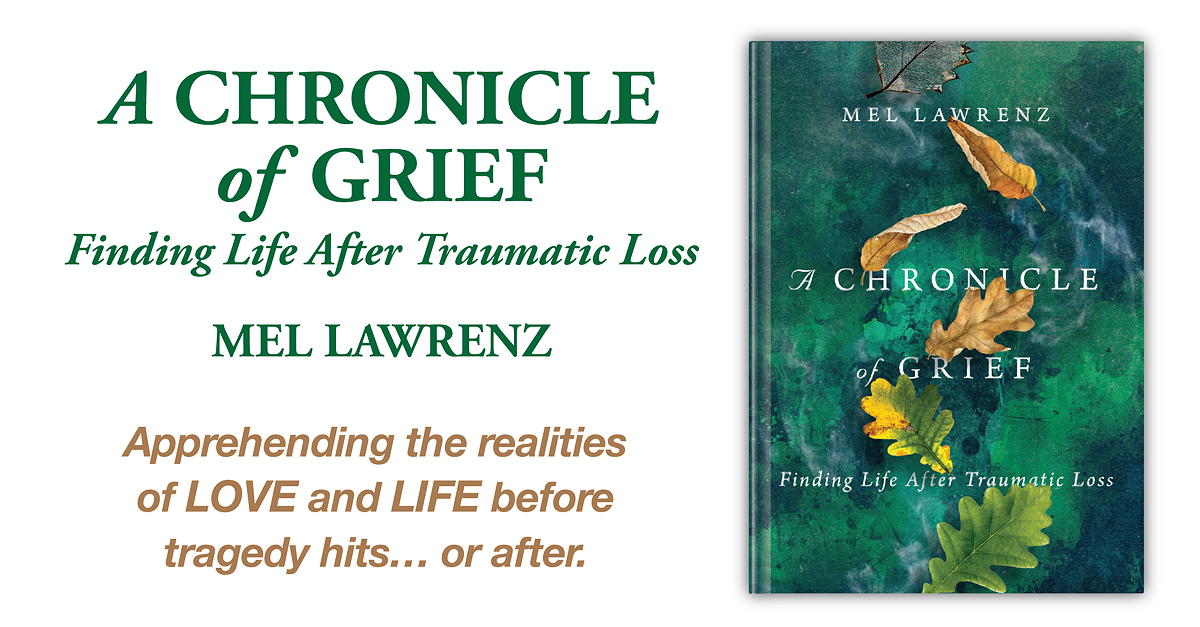Mel Lawrenz is Teaching Pastor at Elmbrook Church. His most recent book is about dealing with loss, A Chronicle of Grief: Finding Life After Traumatic Loss.
It is good to work, good to get tired, and good to rest. Work is an important principle of life, but it is not the only principle. God allows rest, even demands it, because there are some things that we experience only when we cease the work we usually do and take a different posture in life.
Work involves our spirits, but in the quiet, peace, and play of rest there are other ways we hear the voice of God. Rest is both a natural law, and a law revealed by God. We find it in different forms in the social customs of all the various cultures, and in the Scriptures there are over thirty different Hebrew and Greek words meaning rest. One of them is a foundation stone of biblical teaching: Sabbath.

Remember the Sabbath day by keeping it holy. Six days you shall labor and do all your work, but the seventh day is a Sabbath to the Lord your God. On it you shall not do any work, neither you, nor your son or daughter, nor your manservant or maidservant, nor your animals, nor the alien within your gates. For in six days the Lord made the heavens and the earth, the sea, and all that is in them, but he rested on the seventh day. Therefore the Lord blessed the Sabbath day and made it holy (Ex. 20:8-11).
It is hard to exaggerate the importance of the Sabbath in the history of Israel. The Sabbath was the sign of God’s covenant with Israel. Its violation was a capital offense. It extended beyond the weekly pattern to the observance of the seventh year rest, and the year of Jubilee.
While in British and American Christianity starting with the Puritans it became common to equate the Christian day of worship, the Lord’s day, Sunday, with the Jewish Sabbath, for most of Christian history no such simple transference was made. Instead, as with the rest of the Old Testament law, Christians sought the timeless principles that lay underneath.
There are two basic principles in the Sabbath. One is religious observance. In the offering of sacrifices and prayers, in this gathering of believers (“a day for sacred assembly”) the Israelites had a regular, scheduled cycle of worship. Their service to Jehovah bound them together as a covenant people and set them apart from the surrounding cultures.
The second basic principle is in the word itself. The Hebrew shabbat simply means to stop—to cease what you ordinarily do and do something different. God himself set this creation pattern of rest: he worked for six days fashioning the universe as we know it, and then he stopped. And so he said to man, made in his likeness, to work, and then to stop working.
Learning how to stop is a necessary life skill. It’s not always as easy as it sounds.
Some people have a hard time stopping because they don’t relish the idea of lying around doing nothing. But who ever said rest equals inactivity? When God rested from his creation labors he didn’t retire to some celestial hammock (as the deists would like us to believe). Rest begins when you cease doing the work you ordinarily do and move in a different direction.
The rejuvenation of rest comes differently for different people. It’s important to know for yourself where and how that inner refreshing occurs. One person’s idea of rest is to lie on a beach all day. I have no idea why some people would consider it restful to slowly roast their bodies in the rays of the sun, turning slowly like some giant bratwurst on a grill, but show me a fishing pole and a boat and I feel rested already.
There is a practicality and humanness in stopping. That’s why the Old Testament law prescribed rest for sons and daughters, man and maidservants, the ox, the donkey, and the alien. Everybody needs a break. It is a part of the rhythm of life, and we cannot possibly lead balanced lives without it.
Ceasing the work you ordinarily do allows time and energy for the spiritual growth that comes through personal meditation and corporate worship. If there is no time in our lives to develop personal devotion to God, then it’s time to examine the choices we have made about where the hours of the day go.
Rest honors God when rest is the right thing to do, as surely as work honors God.
“profoundly moving and profoundly life giving”
“this book is extraordinary… full of insight and hope””beautifully written and searingly honest while offering hope for a life beyond loss”
